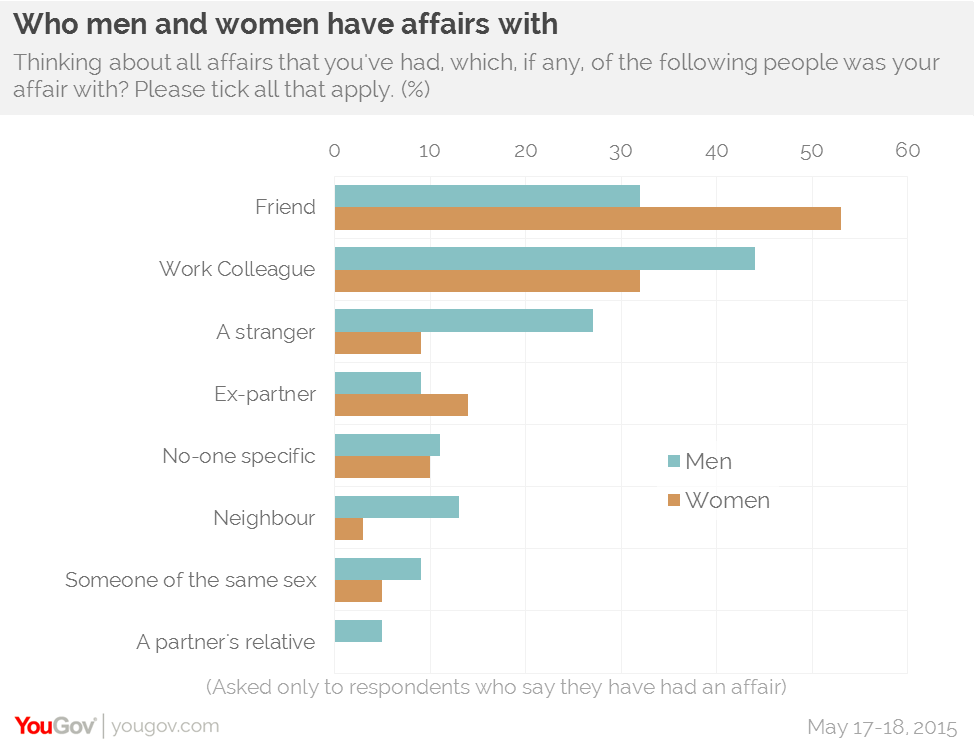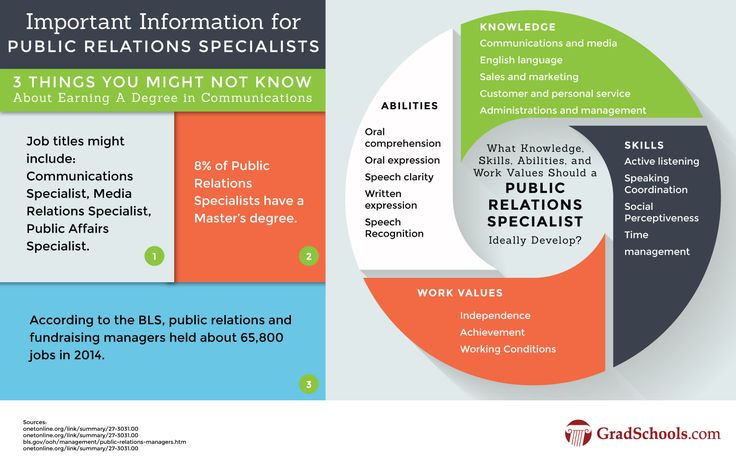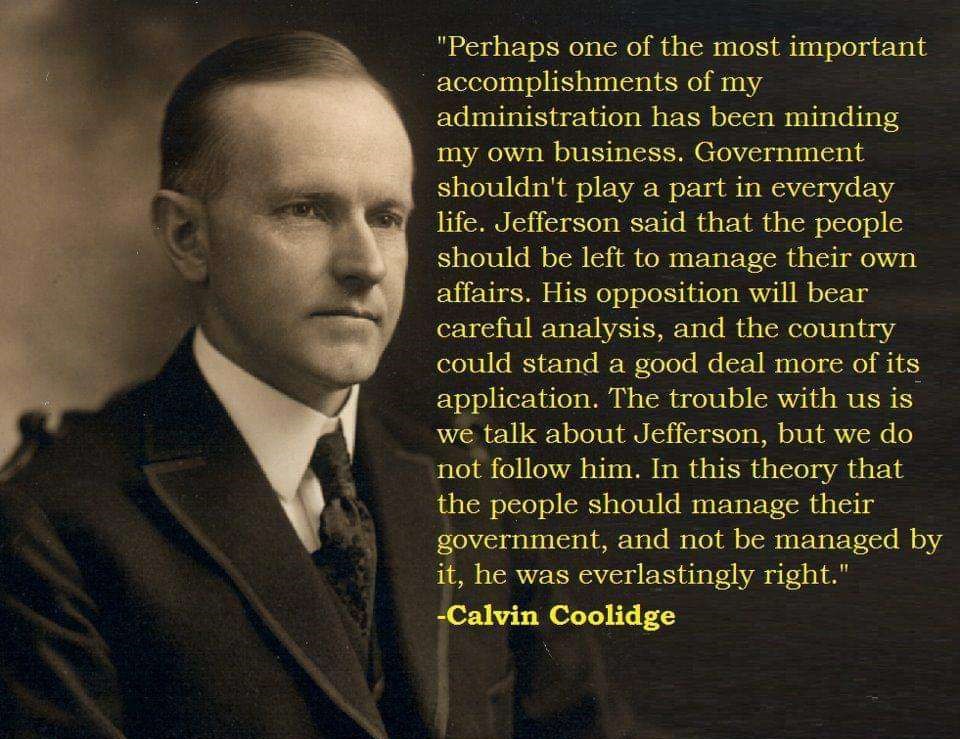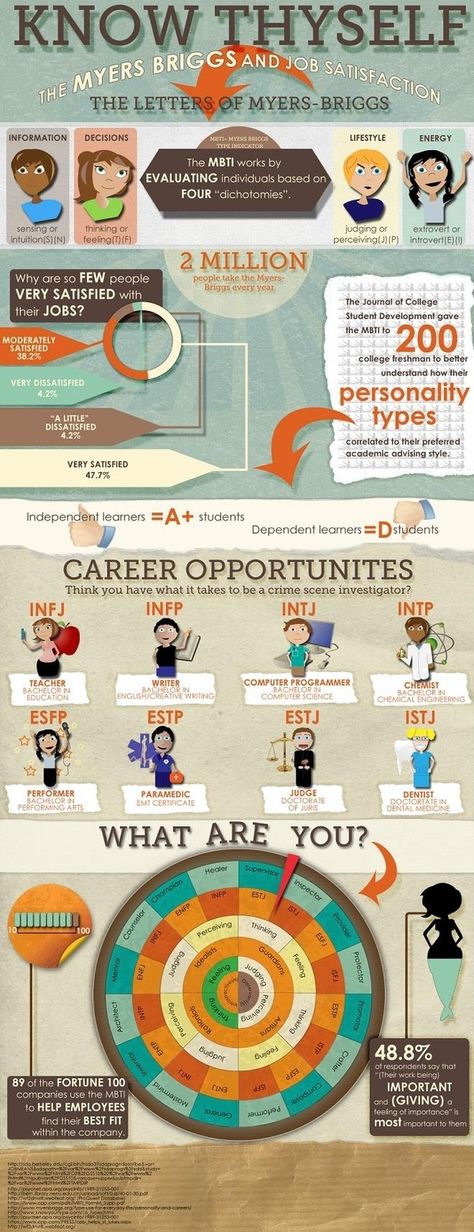Why people have affairs
Why Do People in Relationships Cheat?
Cheating: it’s the ultimate relationship violation and a notorious relationship killer. A favorite gossiping pastime, the phenomenon is frequently discussed but difficult to study. The goal is to avoid getting caught, so why confess infidelity in the name of science?
But scientists can offer us new insight on a topic often shrouded in stigma and mystery. As researchers have recently demonstrated, cheating is rarely a simple affair. There are many reasons why people cheat, and the patterns are more complex than common stereotypes suggest. A fascinating new study sheds some light on these motivations.
The investigation included 495 people (87.9 percent of whom identified as heterosexual), who were recruited through a participant pool at a large U.S. university and through Reddit message boards with relationship themes. The participants admitted to cheating in their relationship and answered the question at the root of the mystery: Why did you do it? An analysis revealed eight key reasons: anger, self-esteem, lack of love, low commitment, need for variety, neglect, sexual desire, and situation or circumstance.
These motivations not only influenced why people cheated but how long they did so, their sexual enjoyment, their emotional investment in the affair and whether their primary relationship ended as a result.
Though most cheating involves sex, it is rarely just about sex itself. Most participants felt some form of emotional attachment to their affair partner, but it was significantly more common in those who reported suffering from neglect or lack of love in their primary relationship. Around two thirds of participants (62.8 percent) admitted to expressing affection toward their new partner. And about the same proportion (61.2 percent) engaged in sexually explicit dialogue with them. Roughly four out of 10 (37.6 percent) had intimate conversations, while one in 10 (11.1 percent) said, “I love you.” Those who reported feeling less connected to their primary partner experienced greater emotional intimacy in the affair, perhaps as a way of fulfilling that need. Similarly, when infidelity was linked to lack of love, individuals found the experience more intellectually and emotionally satisfying.
Participants’ satisfaction with sex differed depending on the reason for their affair. People reported feeling more sexually fulfilled when they cheated because of desire, lack of love or a need for variety. Those who cited a situation as the primary cause were far less satisfied. Much of the sexual activity was limited to kissing (86.7 percent) and cuddling (72.9 percent). In fact, the study found that only half of the cheaters reported having vaginal intercourse.
The reason for the infidelity also greatly impacted its length. In some cases, the relationship was a brief tryst, while others were a longer and deeper attachment. Those who cheated because of anger (such as a wish to “seek revenge”), lack of love or need for variety had a longer affair, while those motivated by the situation (such as those who were “drunk” or “overwhelmed” and “not thinking clearly”) ended it earlier. Women also had a longer affair on average than men.
In the end, only a third of participants ultimately admitted the cheating to their primary partner. Women were more inclined to fess up than men. Those who came clean were more likely to have cheated out of anger or neglect rather than sexual desire or variety. This suggests that their confession was possibly a form of retribution and a way to exact revenge instead of a way to clear their conscience. The participants who confessed were also more likely to form a committed relationship with the affair partner.
Women were more inclined to fess up than men. Those who came clean were more likely to have cheated out of anger or neglect rather than sexual desire or variety. This suggests that their confession was possibly a form of retribution and a way to exact revenge instead of a way to clear their conscience. The participants who confessed were also more likely to form a committed relationship with the affair partner.
While infidelity is typically a clandestine enterprise, some cheaters were less careful than others, perhaps intentionally. Those cheating because of lack of love went on more public dates and displayed more public affection toward their partner. PDA was also common for those seeking variety or looking to boost their self-esteem. On the other hand, situational cheaters were less inclined to cheat out in the open, perhaps because they hoped to return to their primary relationship without getting caught.
So is an affair really a relationship killer? Ultimately, the fate of the participants’ primary relationship depended less on the act itself and more on what motivated it. Cheating was more likely to end a relationship when it arose from anger, lack of love, low commitment or neglect. And it was less likely to do so when the infidelity was circumstantial. Surprisingly, only one in five (20.4 percent) of relationships ended because of the affair. The same number of couples (21.8 percent) stayed together despite their primary partner finding out, while slightly more (28.3 percent) stayed together without their partner discovering their infidelity. The remaining relationships broke up for noncheating reasons.
Cheating was more likely to end a relationship when it arose from anger, lack of love, low commitment or neglect. And it was less likely to do so when the infidelity was circumstantial. Surprisingly, only one in five (20.4 percent) of relationships ended because of the affair. The same number of couples (21.8 percent) stayed together despite their primary partner finding out, while slightly more (28.3 percent) stayed together without their partner discovering their infidelity. The remaining relationships broke up for noncheating reasons.
Rarely did infidelity lead to a real relationship. Only one out of 10 of the affairs (11.1 percent) ultimately turned into a full-fledged commitment—one of the preconceptions that turns out to be true.
ABOUT THE AUTHOR(S)
Gary W. Lewandowski, Jr., is a professor of psychology at Monmouth University. He is author of the new book Stronger Than You Think: The 10 Blind Spots That Undermine Your Relationship ... and How to See Past Them.
and How to See Past Them.
The 8 Reasons Why People Cheat
Source: BAZA Production/Shutterstock
Cheating. It’s the ultimate relationship violation, and one of the most notorious relationship killers. But all affairs aren’t created equal. Some of these relationships are brief trysts, others are longer affairs. A partner’s infidelity can end the relationship, but not always. To understand how these different outcomes come about, we have to go back to the beginning. Why are partners unfaithful in the first place?
In the quest for answers, the most common culprit is to diagnose what’s missing from the relationship, especially sexually. But that type of blame game is an oversimplification that misses a lot of what’s really taking place. In fact, a recently published study by Dylan Selterman, Justin Garcia, and Irene Tsapelas found that only half of the cheaters reported having vaginal intercourse. Certainly, sex is part of the picture, but if cheating isn’t entirely about sex, then what’s motivating people to be unfaithful?
The Many Motivations for Cheating
Lots of reasons. The same study sampled 495 individuals who admitted to cheating in their relationship. To understand their actions, researchers gave them 77 items that all essentially asked: Why did you do it? The analysis revealed eight key motivations, most of which didn’t involve sex at all. For example, many said they cheated due to anger, lack of love, low commitment, esteem, situation, and neglect. Importantly, the reasons why they cheated not only impacted their affairs but their primary relationship as well.
The same study sampled 495 individuals who admitted to cheating in their relationship. To understand their actions, researchers gave them 77 items that all essentially asked: Why did you do it? The analysis revealed eight key motivations, most of which didn’t involve sex at all. For example, many said they cheated due to anger, lack of love, low commitment, esteem, situation, and neglect. Importantly, the reasons why they cheated not only impacted their affairs but their primary relationship as well.
There are a lot of reasons why people cheat on their romantic partner.
Source: (Selterman et al., 2020)
The Anatomy of an Affair
Motivations for cheating impacted the length of affairs. When people cheated due to anger, lack of love, or variety, their affairs were longer, while those motivated by the situation had shorter affairs. Women also had longer affairs on average than men. Affairs were also longer and more emotionally satisfying when participants felt closer to their affair partner.
In the affairs, most (62.8 percent) admitted to expressing affection for the new partner and having sexually explicit dialogue (61.2 percent). Roughly 4 out of 10 (37.6 percent) had intimate conversations, while 1 in 10 (11.1 percent) said: “I love you.” Those who reported less emotional connection in their primary relationship had more intimacy with their affair partner, perhaps as a way to seek out missing fulfillment. The key motivation for greater emotional intimacy with affair partners was lack of love in the primary relationship. Similarly, when the affair was prompted by lack of love, individuals found the affair more intellectually and emotionally satisfying, but much less so when the situation motivated the affair.
Much of the sexual activity in affairs involved kissing (86.7 percent) and cuddling (72.9 percent). Mutual masturbation (53.5 percent), oral sex (46.4 percent, vaginal sex (53.3 percent), anal sex (6.1 percent), and no physical contact (5.7 percent) were all less common. Individuals were more satisfied sexually with their affair partner when they cheated due to sexual desire and variety, as well we lack of love, but not when they were cheating because of the situation. Men and women reported similar frequencies of sex with the affair partner and did not differ in their sexual satisfaction levels.
Individuals were more satisfied sexually with their affair partner when they cheated due to sexual desire and variety, as well we lack of love, but not when they were cheating because of the situation. Men and women reported similar frequencies of sex with the affair partner and did not differ in their sexual satisfaction levels.
Do People
Want to Get Caught?We typically think of cheating as a clandestine enterprise, the success of which depends on not getting discovered. But some cheaters aren’t as careful as others, perhaps intentionally. Those cheating due to lack of love went on more public dates like going out to dinner or the movies. Kissing in public and other public displays of affection were more common for those motivated by lack of love, wanting to boost their own self-esteem, and those seeking more variety. Again, not exactly secretive behavior. Clearly, these individuals weren’t as concerned about getting caught and may have even wanted to get caught (i. e., the affair was an exit strategy). In each case, situational cheaters were less inclined to cheat out in the open, perhaps because they had no plans of ending their primary relationship.
e., the affair was an exit strategy). In each case, situational cheaters were less inclined to cheat out in the open, perhaps because they had no plans of ending their primary relationship.
Confessions of a Cheater
Why people cheat impacts how they handle it. For example, many cheaters confessed their affair. In fact, there was almost a 50/50 split between disclosers and secret-keepers. Women were more likely to fess up than men. Overall, those who came clean were more likely to have cheated initially out of anger or neglect, and not because of sexual desire or variety. Those motivations suggest that the confessions were likely a form of retribution and more about being nasty than noble. However, those who came clean were also more likely to form a committed relationship with the affair partner.
Cheating’s Aftermath: The Affair Partner
What happened with the affair partner? The affairs rarely resulted in real relationships with only one out of 10 of the affairs ultimately turning into a full-fledged committed relationship (11. 1 percent). More commonly, people only saw that person occasionally (31.1 percent), with another third (29.9 percent) staying friends with their affair partner, and the remaining 25.5 percent shutting the affair partner out and having no contact with them. Those who cheated for situational reasons, or for reasons of variety, were less likely to have transitioned into a serious relationship and more likely to see their affair partner occasionally.
1 percent). More commonly, people only saw that person occasionally (31.1 percent), with another third (29.9 percent) staying friends with their affair partner, and the remaining 25.5 percent shutting the affair partner out and having no contact with them. Those who cheated for situational reasons, or for reasons of variety, were less likely to have transitioned into a serious relationship and more likely to see their affair partner occasionally.
Cheating’s Aftermath: The Primary Relationship
For the primary relationship, surprisingly only 1 in 5 (20.4 percent) ended because of the affair. Near equal numbers (21.8 percent) stayed together despite their partner finding out, while slightly more (28.3 percent) stayed together with their partner never discovering the infidelity. The remaining relationships broke up for non-cheating reasons.
The reasons why people stray helped determine the relationship’s fate. The affair was more of a relationship killer when cheating was due to anger, lack of love, low commitment, and neglect, but not when infidelity was due to the situation. Though an emotionally impoverished primary relationship was the primary reason to end the relationship, having better as well as more frequent sex with the affair partner was also a factor.
Though an emotionally impoverished primary relationship was the primary reason to end the relationship, having better as well as more frequent sex with the affair partner was also a factor.
Overall, these findings show that cheating isn’t as simple as seeking out sex. In particular, there appear to be two main motivators for cheating: the situation and a broken relationship (i.e., lack of love), with the latter leading to more serious affairs. While we can use these findings to identify warning signs in our own relationship, there’s a better way. These findings show the importance of strengthening our relationship’s emotional connection. Not only will that negate a major motivation for infidelity, but also help us have a more satisfying and committed relationship.
Facebook image: BAZA Production/Shutterstock
The effect of fixation, or about the paralysis of unfinished business
return Reading time: 10 minutes | Comments: 9
Save
Suppose you are expecting guests in the evening. You've tidied up the house, cleaned up scattered items, figured out how you'll entertain everyone, cooked food and bought drinks. Everything is ready, although there is an hour left before the arrival of the guests. It would seem that this is a great time to do something else, but, paradoxically, this time does not feel like free time for most people. We are already busy: we are having a party, even if there is an hour before it starts. This hour is already reserved by our consciousness, so we cannot use it for another task. Instead, we are busy waiting for guests to arrive. Some people in such a situation cannot even read a book and constantly look at their watches, wishing that the event would finally happen. This is the simplest demonstration of fixation from the book "Mental Traps" by André Kukla, published by Alpina. nine0003
You've tidied up the house, cleaned up scattered items, figured out how you'll entertain everyone, cooked food and bought drinks. Everything is ready, although there is an hour left before the arrival of the guests. It would seem that this is a great time to do something else, but, paradoxically, this time does not feel like free time for most people. We are already busy: we are having a party, even if there is an hour before it starts. This hour is already reserved by our consciousness, so we cannot use it for another task. Instead, we are busy waiting for guests to arrive. Some people in such a situation cannot even read a book and constantly look at their watches, wishing that the event would finally happen. This is the simplest demonstration of fixation from the book "Mental Traps" by André Kukla, published by Alpina. nine0003
The stakes are higher when it comes to studying or working, because when preparing for exams or planning work tasks, an hour is a huge amount of time. As Maxim Dorofeev wrote in Jedi Techniques by the MIF publishing house, one small meeting scheduled for the middle of the day can easily ruin the whole day for some people, because neither before nor after it they are unable to do anything seriously. Before the meeting, the time needs to be filled with something, because the fact of the approaching event gets on your nerves (fixation effect), and after that it seems that it’s too late to do something useful, because more time is required (uneconomical thinking, saying that serious things can only be done in a few hours and nothing else). As a result, the day is lost, although there is no logical explanation for this. nine0003
Before the meeting, the time needs to be filled with something, because the fact of the approaching event gets on your nerves (fixation effect), and after that it seems that it’s too late to do something useful, because more time is required (uneconomical thinking, saying that serious things can only be done in a few hours and nothing else). As a result, the day is lost, although there is no logical explanation for this. nine0003
Some people, who rarely go on vacation or business trips, start preparing a few days in advance and put off everything for the return period, because they are already “busy”, almost left. Others make long lists of tasks, hoping that it disciplines them, but in fact the excitement of not completing each of them accumulates until the anxiety and pressure it causes turns a person into a neurotic. All of these startling reactions arise from the way people perceive unfinished business. nine0003
Man is not the only being who behaves so illogically when confronted with unfinished business. Animals have a so-called biased activity. Researchers have found that if an animal cannot start or complete an action, or if it has a conflict of motivations (for example, two hyena-like dogs collide at the border of their territories and do not know whether to attack or run), the animals begin to engage in meaningless activities. substitution actions that are completely inappropriate for the situation, for example, they circle, wash themselves, dig holes, and so on. Hyena-like dogs in the described case begin to run and dig in the ground. Quite wittily and simply about displaced activity is described in the video blog “Everything is like animals”:
Procrastination: hello from the inner hamster
In a person, the conflict between several important tasks or the fear of making a decision causes procrastination, which is familiar to everyone, that is, putting things off until later and / or replacing them with diligent doing something else like writing texts, reading social networks , making cupcakes or training with heavy weights.
But inadequate behavior when it is impossible to complete the work that has been started - this is the effect of fixation. When you make an appointment, you mark it in your head as a task to be completed, sort of “starting” it, but you are not able to immediately complete it or even begin to complete it, which causes anxiety. You don't actually do anything, but the wait is seriously exhausting. The tension is especially strong if the task is very stretched out in time - for example, you are treating your teeth, having scheduled a series of visits to the dentist, or working on tasks where their completion depends not only on you, but also on others (many can wait half a day for an answer, not able to do other things at this time). nine0003
The behavior of a person faced with unfinished tasks was studied by Kurt Lewin together with his team of researchers - Maria Ovsyankina, Bluma Zeigarnik, Vera Mahler and others. In the course of experiments, they found that a person has big problems with unfinished business, and even with absolutely meaningless ones. That is why, by the way, many project managers tend to complete the most hopeless and even unprofitable project instead of quitting it, because unfinished business creates internal dissatisfaction. nine0003
That is why, by the way, many project managers tend to complete the most hopeless and even unprofitable project instead of quitting it, because unfinished business creates internal dissatisfaction. nine0003
Kurt Lewin
(source: jewishcurrents.org)
Bluma Zeigarnik
(source:)
Levin's assistant and our compatriot Maria Ovsyankina conducted a simple experiment: she gave adults a boring and useless task - to put together a figurine from cut parts . When the subject completed about half of the task, she interrupted him and asked him to do the second, unrelated to the previous one. At the same time, she covered the incompletely assembled figure with a newspaper. It turned out that after completing the second task, 86% of the subjects wanted to return to the first interrupted task and complete it, and the inability to do this increased the heart rate and had other psychophysiological effects. The researcher changed tasks, but the result remained the same. Kurt Lewin was extremely surprised by the data. “Why do adults, having started such a stupid job as folding figures, want to return to it? After all, there is no interest or encouragement!” he wondered. As a result, Levin concluded that people have a need to complete any, even meaningless, task. So numerous proverbs and folk wisdom that what has been started is worth finishing is not just a call to the virtue of labor, but also a consequence of our painful relationship with unfinished business. nine0003
“Why do adults, having started such a stupid job as folding figures, want to return to it? After all, there is no interest or encouragement!” he wondered. As a result, Levin concluded that people have a need to complete any, even meaningless, task. So numerous proverbs and folk wisdom that what has been started is worth finishing is not just a call to the virtue of labor, but also a consequence of our painful relationship with unfinished business. nine0003
In addition, Bluma Zeigarnik discovered what is now called the Zeigarnik effect. Her experiments showed that a person remembers unfinished business much better than completed ones. When we finish a task, we lose interest in it very quickly, while unfinished tasks remain in memory much longer. We not only suffer from unfinished business, but also are not able to get it out of our heads. This also explains, for example, why people finish reading bad books, although this does not give them any pleasure. You can break the system if you stop doing it. In his book Intention, Will, and Need, Levine gives this example: “Someone immersed themselves in a stupid newspaper novel, but did not read it to the end. This romance can haunt him for years." nine0003
In his book Intention, Will, and Need, Levine gives this example: “Someone immersed themselves in a stupid newspaper novel, but did not read it to the end. This romance can haunt him for years." nine0003
A typical example of fixation on an unfinished business from Maxim Dorofeev's book
(source: )
Kurt Lewin, with Vera Mahler and other researchers, also tried to understand how to overcome anxiety and suffering from unfinished business. In his book, Kurt Lewin included a chapter entitled "Substitute Execution" where he described how the stress of unfinished business can be avoided by engaging in another but similar activity. For example, he noticed that the interrupted activity of drawing or telling a story ceases to bother a person if he begins to draw something else or tell the story in a different way. By the way, the researcher also wrote that “surrogate completion” shows a great effect, when a person delegates a task to another (and ticks “done” in his head), or even imitates the completion of a task. For example, you marked yourself to buy something, but instead of buying it, you go to the store, tick off the list, and thus muffle the inner voice that gets on your nerves. The most interesting thing is that watching a person working on a similar task or completing it also creates a feeling of relaxation. nine0003
For example, you marked yourself to buy something, but instead of buying it, you go to the store, tick off the list, and thus muffle the inner voice that gets on your nerves. The most interesting thing is that watching a person working on a similar task or completing it also creates a feeling of relaxation. nine0003
It is very important for modern man to understand that he will have to exist among unfinished business, and this is normal. Moreover, some cases end up being left unfinished because they are no longer relevant or have not paid off. Many, for example, feel guilty and uncomfortable for nothing when they remember how they started playing the harmonica or studied the art of the Renaissance, and then quit. If a hobby does not live up to expectations, it is not necessary to torture yourself in order to "finish the job." nine0003
Highlighting the points of the plan in red perfectly creates internal panic, but it will not speed up the completion of tasks (except at the initial stage, after which a nervous breakdown or procrastination will follow). This is especially true for those who have started a business that is extended over time - learning a new language or professional field, creating their own games, comics, courses, maintaining serious large-scale projects.
This is especially true for those who have started a business that is extended over time - learning a new language or professional field, creating their own games, comics, courses, maintaining serious large-scale projects.
In this case, you will have to live under the huge shadow of an unfinished project for a long time. Being at a dead end and horrified by the unfinished, a person even lying on the couch “is in the process”, not resting, unable to do something useful and at the same time terribly straining. It helps to clearly highlight the intermediate stages, the achievement of which causes relief, a sense of progress. nine0003
Typical commit example
(source: mnogosdelal.ru)
It is important to realize that a lot of important tasks can be done in 20-30 minute increments, and it is not necessary to wait until you free up a long time slot. Having a couple of hours during which no one bothers you is a great luxury. And if you do something for half an hour a day, by the end of the week there will be a huge amount of time. It is likely that, using such "temporary filings", you will do a lot of things while waiting for guests, a meeting or a course review. nine0003
It is likely that, using such "temporary filings", you will do a lot of things while waiting for guests, a meeting or a course review. nine0003
Maxim Dorofeev writes that due to the fixation effect, you will not take the opportunity to do something else (“oh, I can’t, I’m learning English / meeting guests / getting ready for a meeting, I’ll just finish ...”), but then suffer from lack of time. Unfortunately, it will not be possible to completely get rid of internal tension, but you can alleviate the situation if you consciously switch to similar things in the direction and catch yourself in the process of useless waiting.
January 17, 2018, 19:00 nine0055
Freelance writer
Zhanna Poyarkova
IT project manager and science fiction writer. I love non-standard ideas and unexpected solutions.
science life hacks
student teacher eternal student
Found a typo? Select the fragment and press Ctrl+Enter.
– Education as a Lifestyle
You have some interesting news or material from the field of education or popular science?
Tell us!
[email protected]
© 2014-2022 Newtonew. 12+
Educational media project on education, dedicated to the most relevant and useful concepts, theories and methods, technologies and research, products and services. We talk about how they develop and change education and science. nine0055 Copying materials is only possible with the permission of the Newtonew editors.
USE special project ProTeachers
MOOC 2016 Big Variable
Physics: Lightning
Road to the Future
Few Years
21st Century Education
We use cookies to improve user experience. You can find more details in our user agreement.
You can find more details in our user agreement.
App Store Google Play
Subscribe to newsletter
Subscribe to newsletter
Why some people succeed and others don't — Work.ua
Rapid career growth, respect from colleagues, high salary, family idyll — someone gets it all for one or two, and someone never and fails to find himself in life and achieve heights. Work.ua figured out who to blame and what to do.
The formula of success for many remains as incomprehensible as the recipe for the philosopher's stone for the ancient alchemists. At the same time, it often happens that a person gives all his best at work, has all the necessary qualities to build a happy family, but from time to time remains out of work. nine0003
Perhaps there really is a secret. Work.ua analyzed the biographies of the most successful people of our time in order to understand in which direction those who do not want to remain at the foot of the Olympus of personal and professional success should move.
Successful people accumulate knowledge
Elon Musk, the most famous entrepreneur of the 21st century, needs no introduction. At the same time, his main talent lies in how masterfully he is able to absorb new information, look for options to achieve his goals, and constantly expand the field of knowledge. When he became interested in space technology, he immediately delved into this area, wanting to find out as much as possible, understand the principles of operation of space equipment, etc. And what has he achieved now? In a couple of years, under the leadership of Musk, it is planned to launch people to Mars! nine0003
And now attention. Every day a billionaire from South Africa reads two! books. And this is someone who works 80 hours a week.
Bottom line - if you want to succeed, read, learn new things, attend various trainings and seminars, do not stand still, expand your worldview.
Don't get distracted by minor details
When you mention Steve Jobs, how do you imagine him? Let me guess, in black golf and blue jeans? Not in a Brioni suit, not a million million dollar watch, not even accompanied by an Ethiopian-born supermodel. All the external surroundings and pathos are clearly not about him. But about him - a sharp mind, the ability to find non-standard solutions to issues, leadership and organizational talent, faith in one's own strengths and in the strengths of one's team. nine0003
All the external surroundings and pathos are clearly not about him. But about him - a sharp mind, the ability to find non-standard solutions to issues, leadership and organizational talent, faith in one's own strengths and in the strengths of one's team. nine0003
If you have a dream, a goal, a plan, stick to it. Believe in the success of your business, do not be distracted by unnecessary tinsel, do not let momentary desires lead you astray. Remember that the main thing is to be dedicated to your work, and not to fashion, trends and other people's stereotypes.
Don't be afraid of bold ideas
One of the brightest examples of out-of-the-box thinking is Tony Shay, founder of the world famous online store Zappos. His approach to business and organization of work processes has become an example for hundreds of thousands of entrepreneurs. He was not afraid to trust his instincts, to invest in a project that seemed absurd to many - to sell shoes via the Internet, to offer customers a truly top-notch service.














